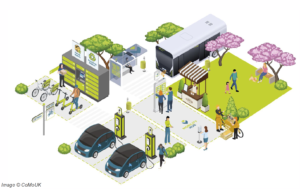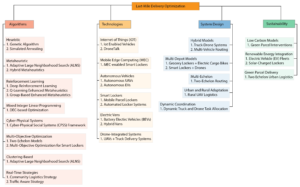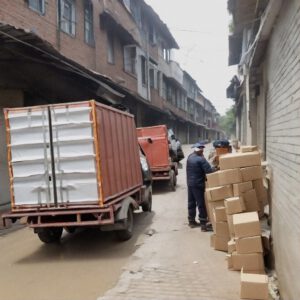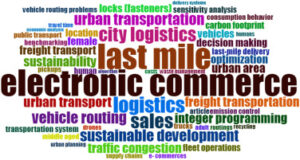Key characteristics and challenges of last-mile operations

A recent publication by Agatz et al. provides an overview of key characteristics and challenges of last-mile operations (LMO): Final Stage of Supply Networks LMO processes occur at the last stage of supply chains, directly fulfilling individual agent demand. Operations and resources (people, equipment, inventory) are widely dispersed. Diverse geographical areas create specific challenges: Urban …









